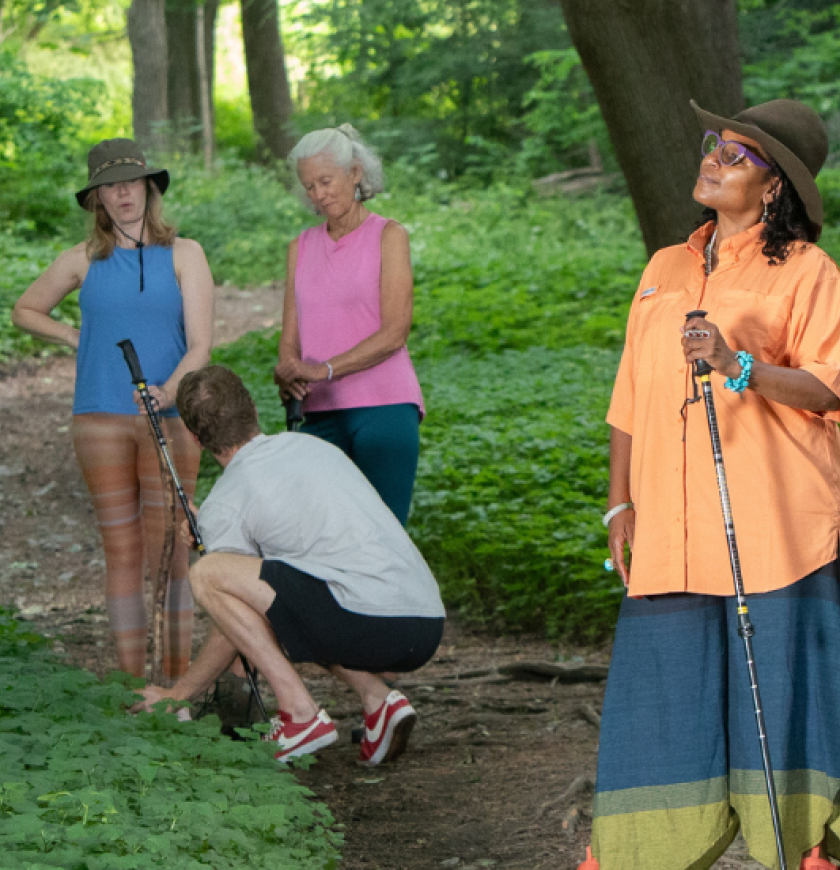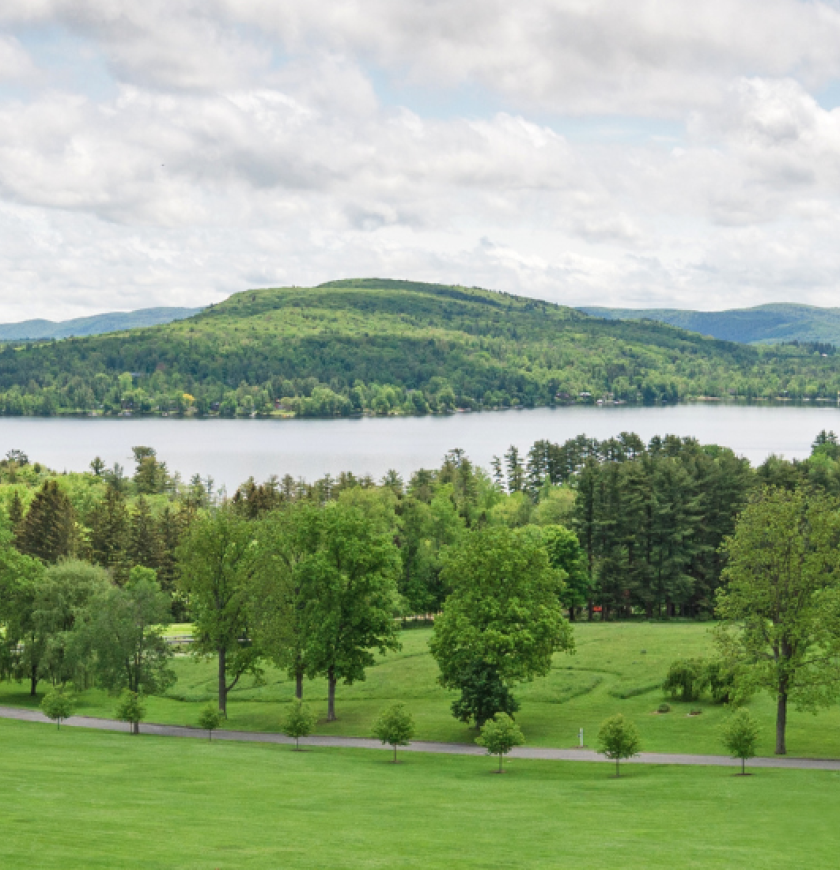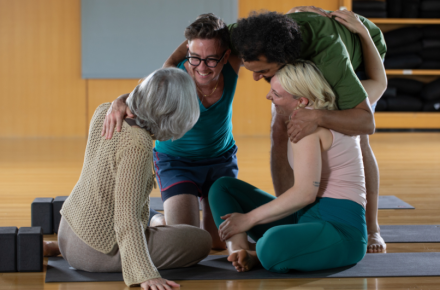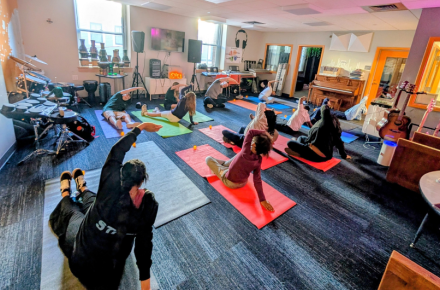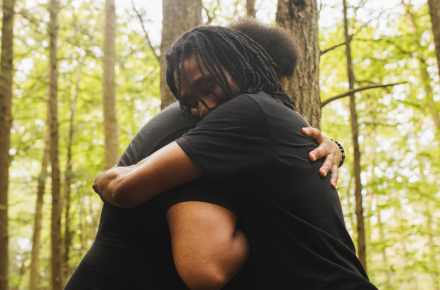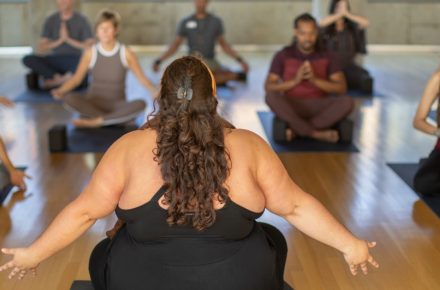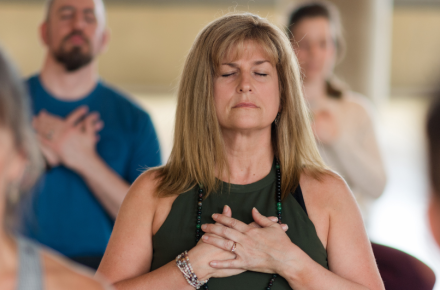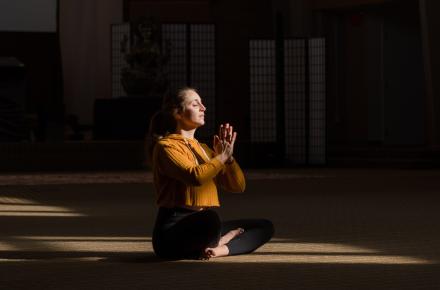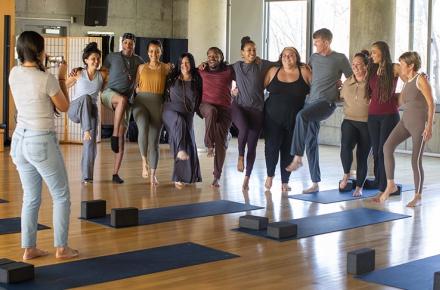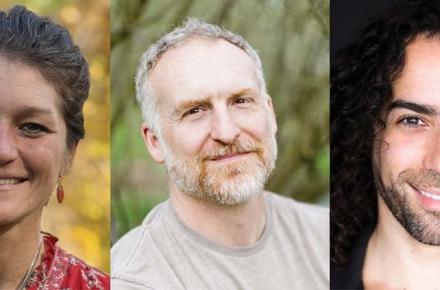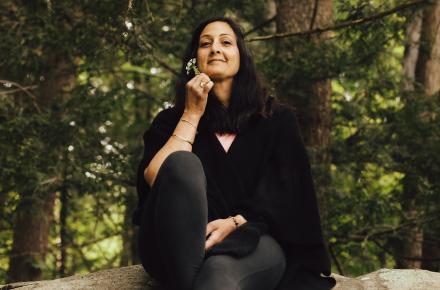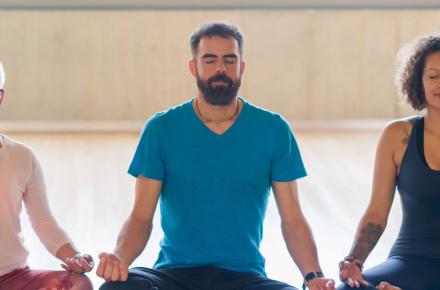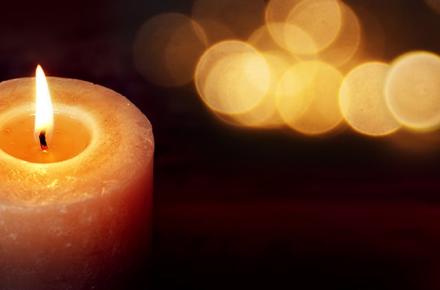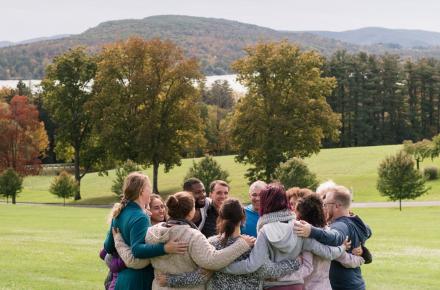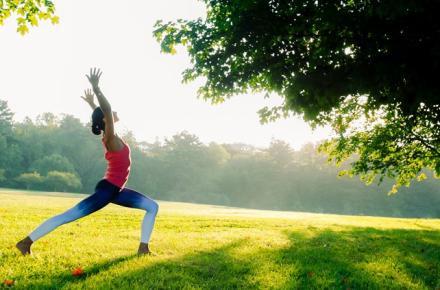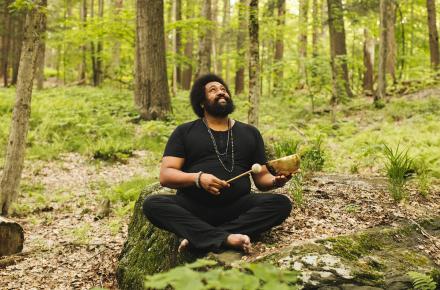Dreams and Transformation: A Q&A with Marc Bregman and Christa Lancaster

When Marc Bregman and Christa Lancaster—partners in life and work—wake up in the morning, the first thing they do is tell each other their dreams. They are longtime students and teachers of Archetypal Dreamwork, which explores how dreams work to unlock the buried treasure of our feelings and beliefs. In this Q&A, they talk about accessing the messages our dreams hold for us, how to become more attuned to dreams, and their own dream experiences.
Dreams are such a big part of our collective imagination—there’s so much myth and mystery surrounding them. How do they teach us about ourselves?
Christa Dreams force you down to earth. People want to think of dreams as being all about wonderful visions and landscapes, but often they’re offering us insight into the smallest details of everyday life—what we do in relationships, how we pull back, or how we avoid challenges. When you begin looking at your dreams, it’s kind of like boot camp. You have to look at your shadows and where you’re stuck. The way we teach it, it’s about honest confrontation, along with great love. Every dream comes with incredible love and wisdom, so that we can look at ourselves, open up, and find more joy. There’s no bypassing the difficult work, which is to look at yourself and find what is really true inside.
Marc After every dream session, you’re left with the homework. Basically, it’s a meditation, looking at how something that came up in your dream relates to something else—your boyfriend, your parents, your life. Two identical dreams might mean two different things, based on the people dreaming them. Often, when you start going deeper, you’ll feel pain or unpleasant feelings, and you might realize that you’ve been blocking those feelings.
Christa Dreams keep you honest. When we really start plugging into them, they ask of us such impeccable honesty, and prompt a day-to-day process of alignment with the truest parts of ourselves.
What psychological and spiritual traditions influence Archetypal Dreamwork?
Marc There’s a piece of everything in this work. I see dreams reflecting almost every belief and practice—whether psychological, spiritual, Jung, Freud.
Christa For me, the writings of Buddhist teachers have been really important—notably Pema Chödrön, Sharon Salzberg, and Suzuki Roshi. My journey has been very much informed by the foundation of Eastern practice: to be able to sit with what comes up. I think of dreamwork as the practice of staying with yourself, even the unpleasant parts, and learning to be able to stay long enough for other things to open up. The practice of sitting or the practice of yoga is like the practice of dreamwork—it all helps you learn to stay present in one form or another. I think the dreams give you an individual learning plan and direction to go in, once you decode them.
There are so many stereotypes about how to interpret your dreams—what it means if you see certain animals, or meet certain people. How does Archetypal Dreamwork interpret the meaning of dreams?
Christa Every part of a dream has significance—it’s a matter of uncovering it. Things will suddenly pop out and make sense. There’s so much information, so many moments of the dream to pick up and examine. There might be something that seems small and insignificant, and then suddenly a trap door opens and you’re in a completely different landscape, learning something very, very different. Dreams can be upsetting because they burst our illusions about ourselves. The very thing you love most about yourself might be the exact thing that needs to be dissolved.
Marc Particularly in the early stages of dreamwork, it can be very easy to misinterpret dreams based on the assumptions we make about ourselves, which are often flawed. That’s what makes this work so hard, to challenge those assumptions.
Christa When we come to Kripalu, we have a group of between 12 and 16 people, and over four or five days, everybody gets a turn to have the group members act out their dream. We look at what the parts of the dream mean to the person, and the others embody the characters—somebody might be a lion, somebody might be your mother, or your ex-husband, or your boss, or whoever. Through the process of giving people words from the dreams and seeing them act them out, people tend to have pretty major revelations. Interestingly, once you begin addressing the mundane aspect, wonderful, expansive, transformational dreams open up.
Marc Over time, when you’re doing this work, dreams tend to become more archetypal, more spiritual. Jung would say that you’re being visited by an enlightened being, or tormented by a demon—the deeper you go, the battleground becomes less about the people in your everyday world and more about the archetypal forces we’re all struggling with. You know how people suddenly wake up from a dream and know the words of a song? Muses appear in dreams as beings with their own agenda, working with us in very specific ways. People have a hard time with the idea that archetypes are actually real forces that need to be listened to if they come to you—and, if you do the dreamwork, they do eventually come. Dreams don’t reflect this world as much as they reflect a deeper world of consciousness and exploration. We have to be willing to be vulnerable, naked, humble, and the mystery of this other world unfolds to us.
How do you start the process of tuning in to your dreams?
Marc Write them down—as soon as you wake up, before you get out of bed, even before you go to bathroom. Even if it’s just an image, or a fragment, or a feeling, write it down. Like any muscle you use, your dream muscle will get stronger when you give it your attention.
Would you each be willing to share a personal experience of how you have healed through dreamwork?
Christa As a child, I had an idyllic life, an easy material existence in a beautiful place, with a great family and extended family and a lot of safety and security and ease and material comfort. And yet I had night terrors from the time I was little. I’d wake up in the night screaming—bloodcurdling screams. As I got older, I managed that fear by being very socially competent; I could talk to practically anybody about practically anything, but all the time I was frozen in terror inside.
When Marc and I got together, I began opening up to a whole different reality of dreaming that neither of us had encountered before. I was in historically precise settings from medieval Inquisitional times, and one dream led to another, taking me into these scenes of absolute devastation, whole villages burnt and nobody left alive. I was having to learn to tolerate feelings of extraordinary devastation and violence and death, but I didn’t really know what that meant for me, until I had a dream where I was being asphyxiated by fire and smoke and I couldn’t breathe. I woke up and was telling Marc this dream, and I regressed back into that place in the smoke and I couldn’t breathe. I asked him, Why am I witnessing all these people being burnt or dying brutally by fire? And he said, I don’t think you were watching, I think you were someone who was also being burned alive.
As soon as he said that, the regressive state broke, and I started to breathe normally. And the whole spell of this past-life haunting was broken. From that point, I no longer woke up screaming in the night. That was the end of the mystery. The dreams brought me the narrative, but I needed Marc to say the thing that I didn’t want to hear, but which was the key to healing and releasing it.
Marc When past-life dreams first came for me, since I was not a believer in past lives, I explained it as a metaphor, and it can be looked at that way. I would have dreams of dying and falling and going through heavens and galaxies. I could feel my body was gone, not in heaven or on earth, but in this place of no hope, no existence. I’ve had many dreams about this place, which in my outer life feels like a terrible hopelessness. When I began to understand and work with this deep core wound, it began to shift.
For me, if there’s something out there, a higher consciousness, I haven’t found it anywhere except for dreams. Everything else is an echo of my own thinking. The dream has the incredible gift to take you by the hand and bring you step by step along the spiritual path. That’s how I see dreams—like going directly to a master teacher. No one knows you like your dream, and that’s what’s so scary and so powerful about it.
© Kripalu Center for Yoga & Health. All rights reserved. To request permission to reprint, please e-mail editor@kripalu.org.

